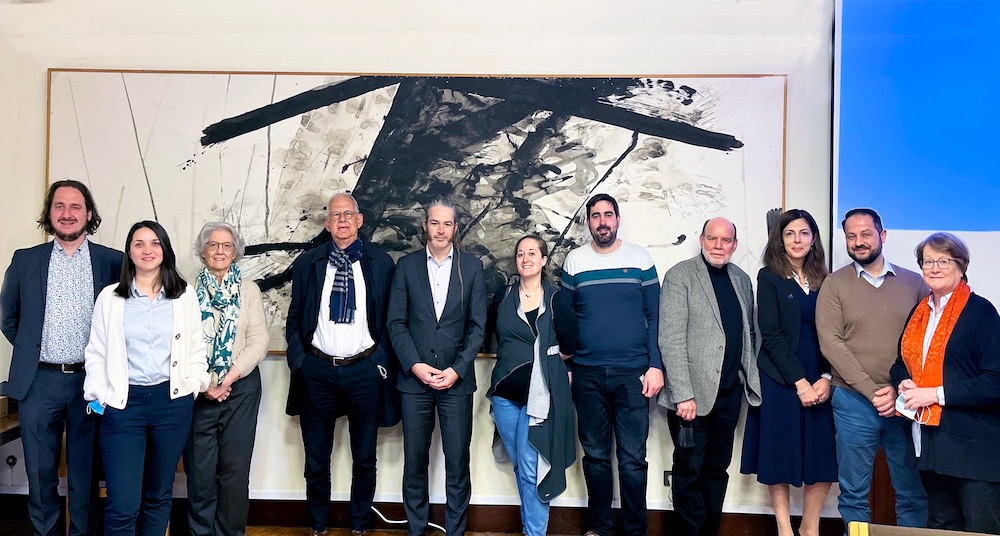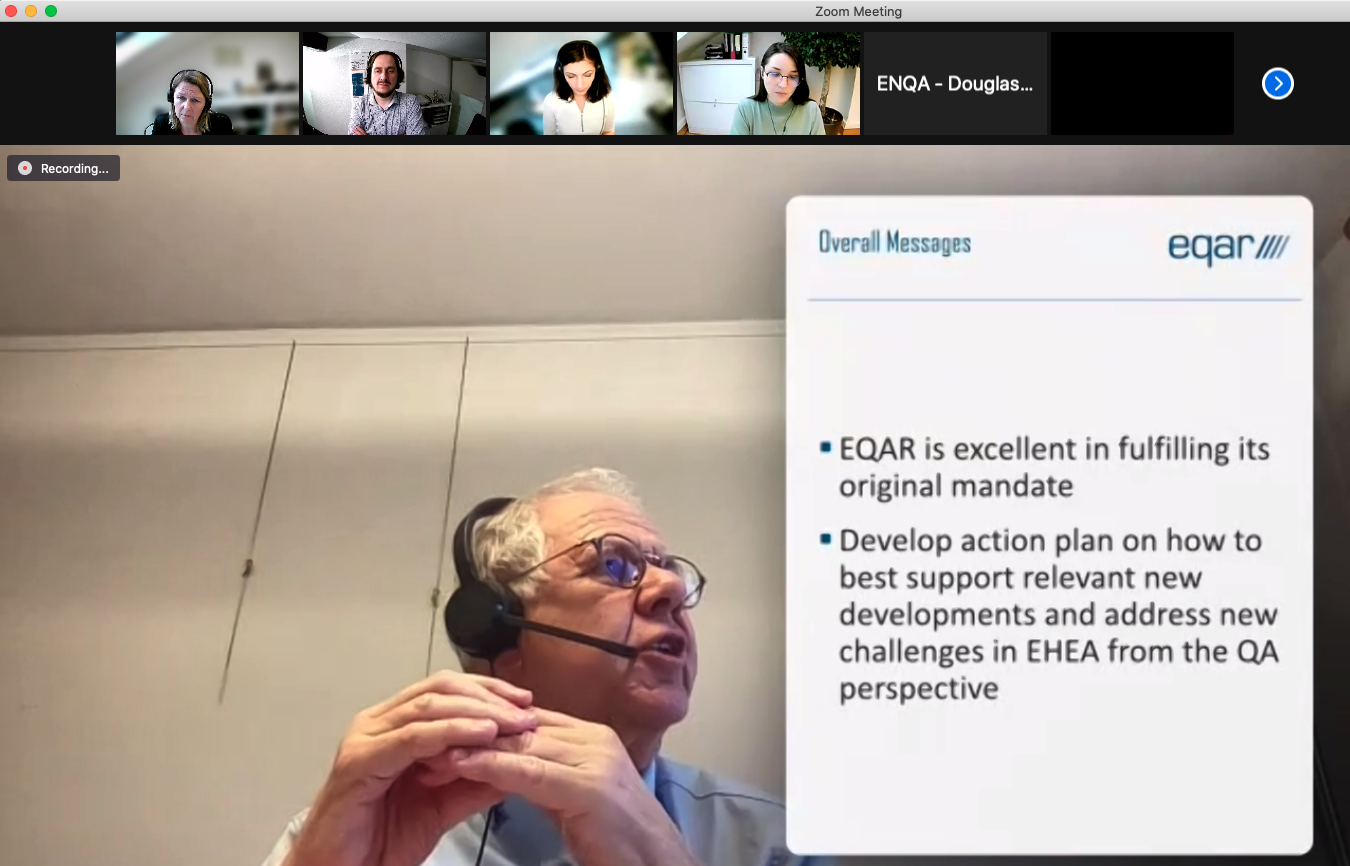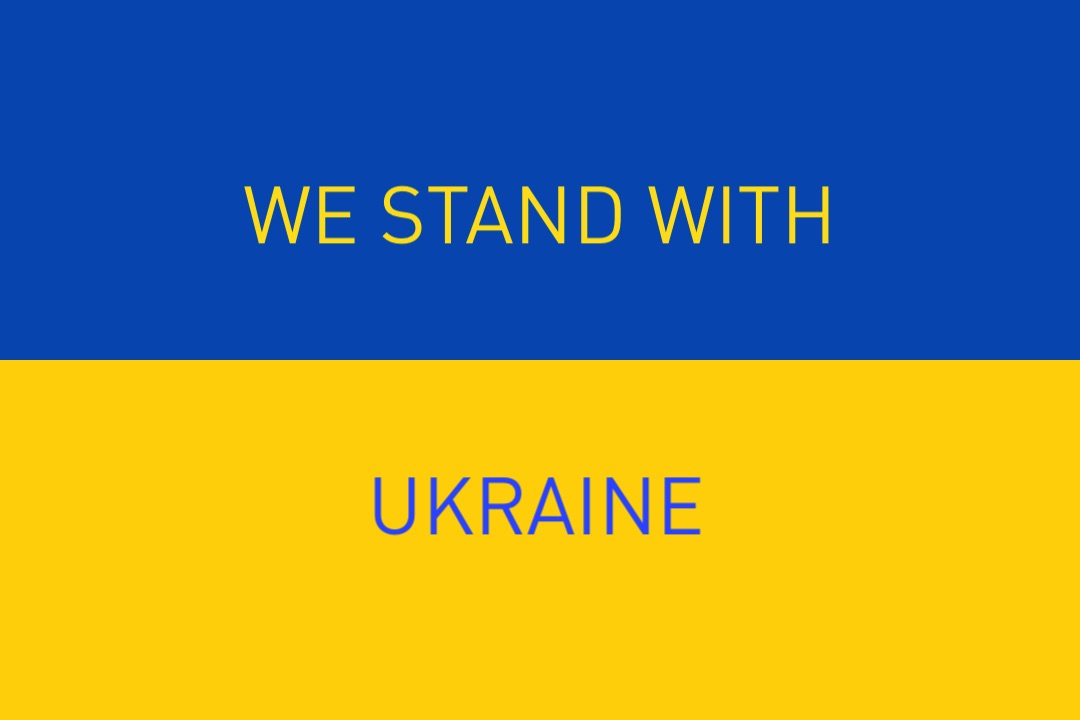EQAR NEWSLETTER - APRIL 2022
News: Latest Register Committee decisions | External Evaluation Report | DEQAR update | Members' Dialogue | We stand with Ukraine
Latest Register Committee decisions
Two Register Committee meetings took place in the last three months, one brief online meeting on 7 February and a second, in-person meeting on 14-15 March in Porto. The Committee approved the renewal applications of three agencies:
-
AQAS – Agency for Quality Assurance through Accreditation of Study Programmes (Germany)
AQAS reports in DEQAR -
FIBAA – Foundation for International Business Administration Accreditation (Germany)
FIBAA reports in DEQAR -
ZEvA – Central Evaluation and Accreditation Agency (Germany)
ZEvA reports in DEQAR
Following up on the recommendations in the External Evaluation Report (see below), the Register Committee discussed various ways to improve the work of the Register such as introducing a complaints procedure about the review process and EQAR’s processes and various changes in the Procedures for Applications.
The Register Committee also discussed several reported substantive changes and the consequences of the Russian invasian in Ukraine (see below).
Read more about the Register Committee meeting in Porto on 14-15 March.
External Evaluation Report - results and recommendations
Quis custodiet ipsos custodes (who watches the watchers)? In EQAR's case it was an independant expert Panel appointed by the Coordinator of EQAR's external evaluation, Yehuda Elkana Center for Higher Education (CEU YECHE). We recently published their report, after an evaluation process that took almost 18 months and which included a Self-Evaluation Report, a site visit and numerous meetings.
The Panel described EQAR as “one of the most successful pan-European organisations in higher education” and concluded that EQAR is excellent in fulfilling its original mandate, as a “reliable, trustworthy, independent register that plays an important role in securing a credible QA system in the European Higher Education Area”. .jpeg)
There is of course always room for improvement and development. The Panel concurred with many opportunities for enhancement that had also been identified in the Self-Evaluation Report, such as further improving the application and appeals process and developing an action plan on how best to engage in the new developments in the EHEA, such as micro-credentials and new joint degrees initiatives.
These and other outcomes were discussed at the EQAR Members' Dialogue in February (see below) and will be further developed and incorporated in the Strategy or Work Plan.
The recommendations of the report should not be the only basis for improvement. Aristotle once said, “Quality is not an act, it is a habit.”. If we expect the modern version of this wisdom i.e. “the development of a quality culture” from our agencies and the HEI community, then we should lead by example and continually strive to enhance our work, our processes and the way we work.
Find out more about the external evaluation and download the report.
DEQAR update
We have been working fervently to connect the DEQAR database with other databases, IT systems and ecosystems in the field of higher education in Europe.  Our aim is to create synergies and efficient data exchange in the interest of higher education institutions and students. This has now yielded some remarkable results:
Our aim is to create synergies and efficient data exchange in the interest of higher education institutions and students. This has now yielded some remarkable results:
ETER - European Tertiary Education Register
EQAR and ETER have cooperated closely since the inception and launch of DEQAR (more about our cooperation here). ETER is an EU-funded initiative that collects qualitative and quantitative data on higher education institutions in Europe, including their basic characteristics, educational activities, staff, finances and research activities.
ETER now provides the number of external quality assurance procedures (excluding those with negative decisions) recorded in DEQAR for each reference year, distinguishing between institutional evaluation, program evaluation at different ISCED level, joint program evaluation and cross-border evaluation. Go to the relevant ETER page.
MusiQuE integration
MusiQuE (Music Quality Enhancement), one of our registered agencies (and also DEQAR CONNECT project partner), has successfully integrated DEQAR into their website. This API integration is available not only to our registered agencies but also to ENIC-NARICs and, although we might be prejudiced, we think it looks simply wonderful. Check it out here.
Verifiable Credentials
EQAR has recently launched a newly-built feature to automatically issue Verifiable Credentials based on the quality assurance data available in DEQAR. They serve as a digitally-signed and tamper-proof label and can further be used to confirm an institution’s official accreditation in the EBSI ecosystem. Making accreditation credentials available automatically, EQAR supports the adoption of digital diplomas by European higher education institutions.
Generic DEQAR Verifiable Credentials can be used by all higher education institutions whenever they need digitally-signed and tamper-proof evidence of their external quality assurance being aligned with the European Standards and Guidelines (ESG). VCs can be downloaded from every single report record in DEQAR.
EBSI-compliant Verifiable Accreditations can be used by higher education institutions planning to join the EBSI ecosystem. Institutions can register their VA on the Trusted Issuers Registry (TIR) and thereby demonstrate their authorisation to issue education diplomas. Find out more here.
Other DEQAR CONNECT project news
- We have been granted an extension to the DEQAR CONNECT project period, which will now run until the end of May, which will allow us to finalise some more project deliverables.
- DEQAR now contains > 70 000 reports covering > 3 000 higher education institutions. Direct link to our database.
- Don't forget our snazzy visualisations of DEQAR data here.
EQAR Members’ Dialogue
The EQAR Members’ Dialogue held on 3-4 February was devoted not only to the external evaluation results, but also to the quality assurance of alternative providers and the inclusion of micro-credential providers in DEQAR. Members’ input on these last two topical subjects is crucial for both the Register and DEQAR.
The following areas (for improvement), highlighted by the expert Panel, were the topics of discussion at the EQAR Members’ Dialogue: 
- How to deal with the challenges regarding cross-border QA in the EHEA and HEIs being able to work with a QA agency from another country.
- How DEQAR could be better tailored to different user profiles and how to define clear and measurable indicators of success for the future.
- How to best use EQAR's expertise in the area of quality assurance and how to make sure that it reaches policy-makers.
- How to appoach and include new trends and developments that are changing the shape of the EHEA, which could not have been anticipated when EQAR was set up.
Check out the agenda and view the recordings of the (online) Members' Dialogue
We stand with Ukraine
EQAR is deeply shocked by the Russian forces’ unacceptable and unjustifiable attack on Ukraine (an EQAR governmental member) and has expressed solidarity to the representative of the Ministry of Education and Science of Ukraine.
EQAR’s work to further the EHEA is based on the principles of pursuit of peace, rule of law and democracy. EQAR therefore supports the statement signed by a large number of European Higher Education Area (EHEA) members and consultative members condemning the Russian invasion of Ukraine as fundamental violation of the values, principles and goals of the EHEA, and of the obligations and commitments Russia has undertaken since it joined the EHEA in 2003.
Moreover:
- EQAR will not initiate any contact or collaboration with any central government agency of the Russian Federation for the time of the invasion.
- EQAR encourages registered quality assurance agencies to award any possible support to Ukrainian higher education institutions where it is in their power. (E.g. extending/prolonging validity periods of quality assurance/accreditation decisions.)
- EQAR recommends that registered agencies do not engage in quality assurance procedures or other work with higher education institutions from Russia unless they can assure themselves that such cooperation is based on shared European values.
- In particular, EQAR recommends that registered agencies do not engage in any procedures or other cooperation with higher education institutions whose leaders signed the Russian Union of Rectors’ (RUR) statement (in Russian).
- In the event of a suspension of Russia’s right of representation in the EHEA, the EQAR Register Committee considers that operations in Russia will temporarily not qualify to fulfil the eligibility criterion for EQAR registration. As a result, the registration of agencies operating only in Russia would be suspended until Russia’s representation in the EHEA will resume.

